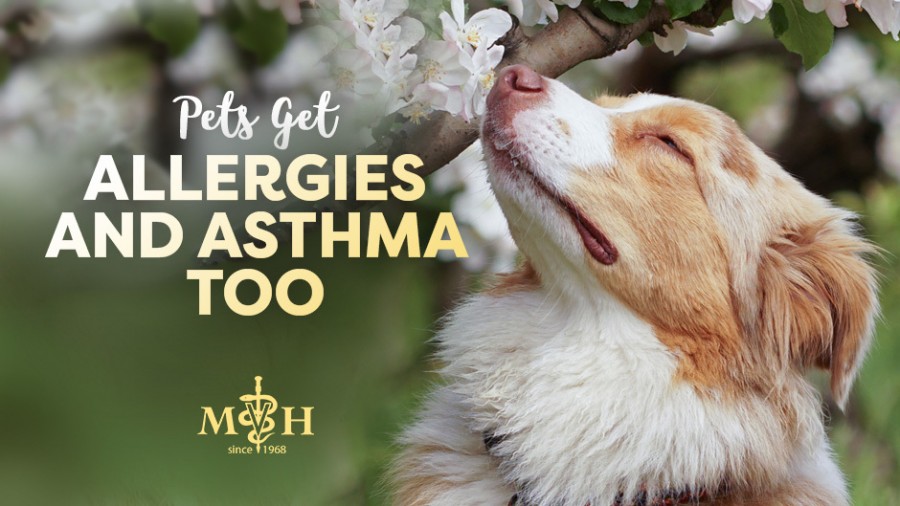It's prime allergy season, which is why the National Asthma and Allergy Foundation chose May for its awareness campaign. National Asthma and Allergy Awareness Month was designed with humans in mind, but it's a great opportunity for pet owners to learn more about the prevention, symptoms, and treatment of these conditions as well.
Signs of Asthma in Dogs and Cats
The cases of asthma in companion animals is growing because of their increased exposure to pollution in the environment. Cats are far more likely to develop the condition than dogs. However, many people don't recognize the symptoms as asthma because they assume their cat is trying to cough up a hairball. Some of the most common triggers of asthma in pets include:
Household dust and dust from cat litter
- Pollen from trees and grass
- Fumes from car exhaust
- Mold and mildew
- Fireplace and tobacco smoke
- Chemicals and household sprays, such as perfume and cleaning products
Your pet will cough and wheeze when she is experiencing a flare-up of asthma, but displays no symptoms in between bouts. If your dog or cat develops severe asthma, she will cough, wheeze, pant constantly, and breathe with an open mouth every day. Left untreated, these chronic symptoms can be life-threatening. It's common for pet parents to confuse asthma symptoms with kennel cough, which is why seeking immediate treatment is so important.
Typical Allergies in Pets
Allergies in companion animals typically fall into one of these four categories:
- Food: An allergy to food can develop at any age and isn't necessarily due to a diet change. Wheat, soy, beef, and chicken are among the most common ingredients in commercial pet food that cause allergy symptoms. If your pet requires a prescription diet, you can order the food in our online store.
- Fleas: Some dogs and cats are especially sensitive to flea saliva. If your pet is allergic to it, he may scratch himself to the point of drawing blood due to severe skin irritation.
- Contact: Allergy triggers in this category include anything that touches your pet's skin, such as shampoo.
- Inhalant: Pollen, dust, and smoke are all examples of inhalant allergy triggers. Your pet develops a reaction after breathing them in.
You can usually tell when a person has allergies due to frequent sneezing, a stuffy nose, or watery eyes. It isn't always as obvious with pets. Your dog or cat will likely lick or scratch herself excessively to try to get rid of the discomfort. Unfortunately, this can cause additional irritation to the skin that could lead to an infection.
How to Help Your Pet with Allergies or Asthma
Please contact Minnesota Veterinary Hospital right away if your notice excessive scratching or licking, wheezing, or coughing in your dog or cat. We will evaluate your pet by asking about his home environment and diet and then run some laboratory tests. This helps us isolate the cause of the symptoms. Most pets with allergies or asthma respond well to medications used to treat their condition. You may need to make minor changes at home also, such as switching food brands or making sure no one smokes around your pet.
Please contact Minnesota Veterinary Hospital right away if your notice excessive scratching or licking, wheezing, or coughing in your dog or cat. We will evaluate your pet by asking about his home environment and diet and then run some laboratory tests. This helps us isolate the cause of the symptoms. Most pets with allergies or asthma respond well to medications used to treat their condition. You may need to make minor changes at home also, such as switching food brands or making sure no one smokes around your pet.

